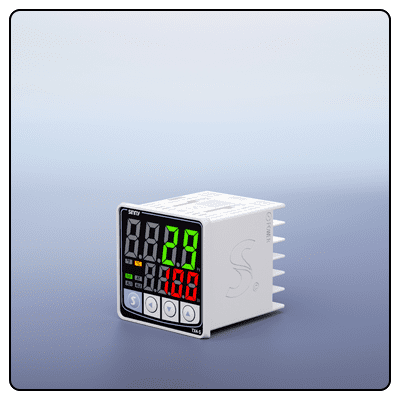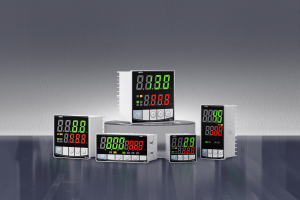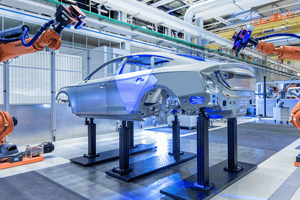How to Select the Appropriate Industrial Temperature Controllers
I'd like you to explore how to select an ideal industrial temperature controller, considering critical criteria, advanced features, and tips on choosing a model suitable to your needs.
1. Introduction
Precise temperature control is crucial to industrial processes and product quality, safety, and efficiency. Temperature controllers are vital in maintaining desired temperatures within specified ranges, making them indispensable in various fields such as manufacturing, food processing, and pharmaceuticals. Selecting an ideal controller could dramatically impact the performance and reliability of any process.
2. Assess Your Application's Needs
To select an ideal temperature controller for your application, it's crucial that you carefully consider its specifications - temperature range, environmental conditions, and level of precision are critical factors in this decision-making process. Various uses might require digital, analog, or PID controllers based on their requirements.
Locate Specific Requirements: Begin by assessing the specific needs of your application. Determine whether you must maintain temperatures within an exact temperature range or accommodate wider fluctuations; some processes might need precise temperature management, while others can withstand more significant variation.
Types of Temperature Controllers: Numerous types of temperature controllers exist to meet various applications. Digital controllers offer precise temperature management that's simple to program; analog units tend to be more rugged for straightforward applications, while PID controllers offer advanced controls by continually adjusting to maintain desired temperatures.
3. Key Points to Keep in Mind
Temperature Range and Accuracy: To ensure an ideal experience when selecting the perfect controller for your application, please ensure its temperature range and accuracy meet the necessary specifications for your process. High precision can often make or break results; for instance, maintaining precise temperatures is vital when manufacturing pharmaceutical products for regulatory compliance standards.
Sensor Compatibility: Finding a controller compatible with various sensors, such as thermocouples and RTDs, is paramount to accurate temperature measurement. You need a controller that supports your sensors for reliable temperature measurements and provides precise readings every time. Each type of sensor offers unique responses regarding response time and accuracy - selecting one suitable to your application is, therefore, crucial to its success.
Environment Conditions: Before selecting a controller for use in any given environment, please make sure to take a look at its environmental requirements. Dust, moisture, and extreme temperatures could compromise its performance or lifespan and require special provisions - for instance, rugged designs with protective features may be essential in harsh industrial settings to guarantee reliable operations.

4. Advanced Features and Functions
Programmability and User Interface: For maximum convenience and flexibility, a user-friendly interface and programmability are essential to ease of use and flexibility. You can look for controllers with intuitive displays and programming features that facilitate effortless adjustments and monitoring - advanced remote monitoring/control features can further boost efficiency and convenience.
Safety Features: Essential safety features like sensor break detection and alarms are crucial to minimize accidents and ensure the efficient running of temperature control systems. They allow operators to be alerted of potential issues as early as possible to take swift action and mitigate damages or injuries as soon as they arise.
Integration With Existing Systems: When selecting your controller, keep its integration into other systems in your setup in mind. Making use of compatible systems will increase efficiency while decreasing modifications necessary. For instance, connecting it with an online monitoring system provides real-time information and coordinated control for multiple processes.
5. Evaluating Manufacturers and Models
Reputation and Reviews: When selecting temperature controller manufacturers, read up on their reputation and reviews to gain more insights into the performance and reliability of specific models. Read testimonials or look for manufacturers with proven track records, which may provide additional clues about their suitability for particular industries.
Support and Warranty Options: A reliable manufacturer should offer extensive customer support and warranty coverage to cover any possible issues, giving customers peace of mind knowing they can seek help quickly if required. This ensures customers enjoy peace of mind that assistance will always be there should something go wrong.
6. Cost Considerations
While initial cost should always be considered, long-term value must also be evaluated carefully. Maintenance expenses, energy usage costs, and productivity improvements are all crucial elements that need to be assessed, as investments can help bring overall costs down while improving performance in the future. Investing in high-quality controllers could lower overall expenses while improving overall performance.
7. Conclusion
In summary, selecting an optimal industrial temperature controller requires understanding your application's unique requirements and considering essential criteria like temperature range, sensor compatibility issues, and environmental conditions while taking a comprehensive view of features like advanced features or manufacturer reputation. These considerations help select one that provides reliable and efficient temperature regulation capabilities.
8. FAQs
Q1. What Is an Industrial Temperature Controller? A1: An industrial temperature controller is a device that maintains an ideal temperature within specified parameters in various industrial processes.
Why is temperature control crucial in industrial settings? | A2: Precise temperature management ensures product quality, safety, and efficiency during industrial processes.| A2: Precise temperature management ensures product quality, safety, and efficiency during industrial processes.
Q3: Which types of temperature controllers are available?
A3: Common types of temperature controllers include digital, analog, and PID controllers - each explicitly designed to address different applications.
Q4: How can I select an ideal temperature controller for my application? A4: Consider factors like temperature range, sensor compatibility, environmental conditions, and advanced features when making this decision.
Q5: Which features are essential to temperature controller safety?
A5: Essential safety features in temperature controllers include sensor break detection, alarms, and fail-safe mechanisms to safeguard and ensure safe operations.
- Innovations in Industrial Temperature Control Technology
- Discover the uncomprehension of Industrial Temperature Controllers





















